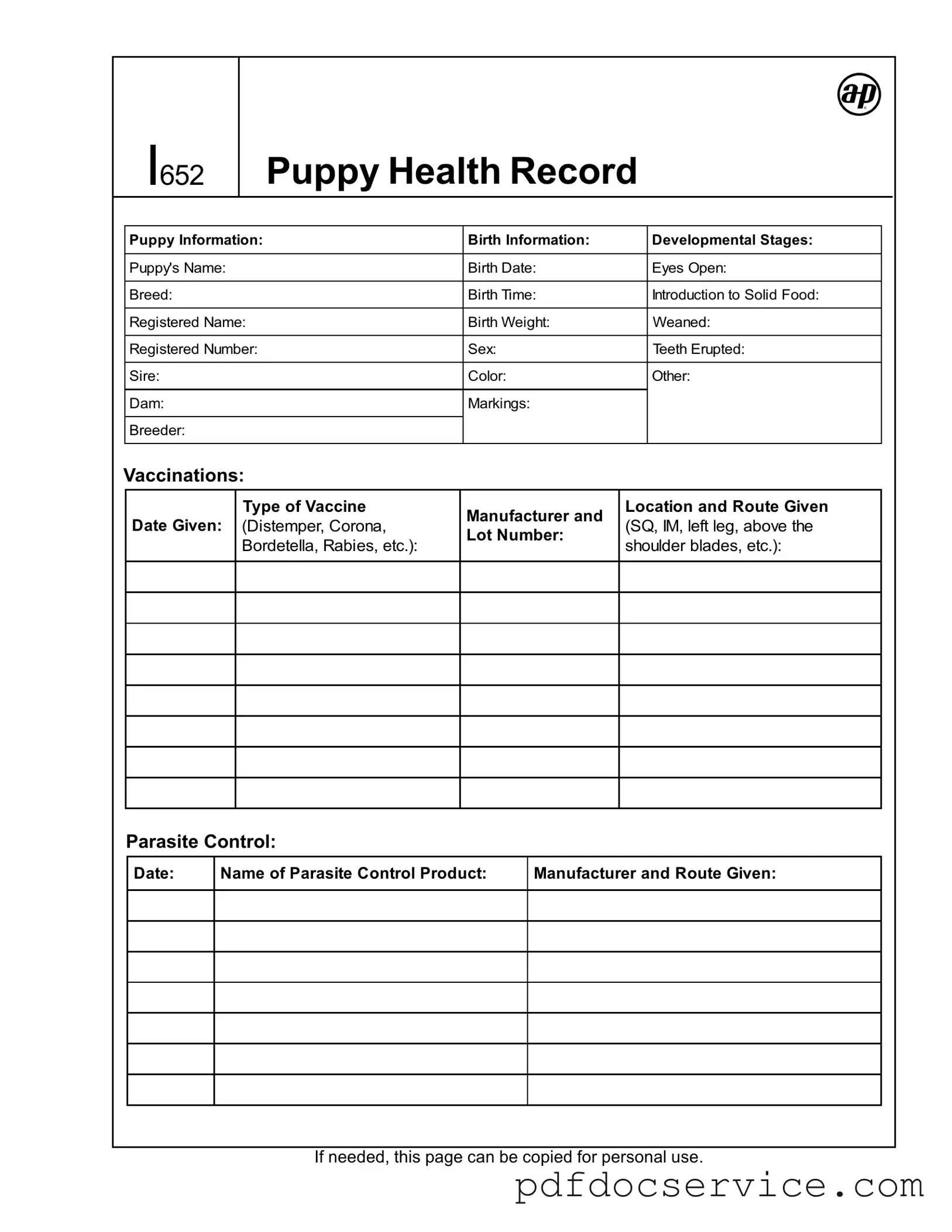Fill Your Puppy Health Record Form
The Puppy Health Record form is a comprehensive document designed to track essential health information for your puppy. It includes details about vaccinations, developmental milestones, and examinations conducted by veterinarians or owners. Maintaining this record ensures that your puppy receives the proper care and attention throughout its early life stages.
Open Puppy Health Record Editor

Fill Your Puppy Health Record Form
Open Puppy Health Record Editor

Open Puppy Health Record Editor
or
Get Puppy Health Record PDF
Finish the form now and be done
Finish Puppy Health Record online using simple edit, save, and download steps.